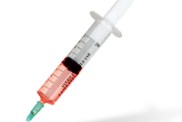On Tuesday morning, San Francisco-based biotech company Loyal announced a significant step towards the approval of their life-extension drug for large dogs, as per Wired. The statement came after the Food and Drug Administration (FDA) Center for Veterinary Medicine confirmed the fulfillment of a vital standard for fast-track conditional approval pathway of animal treatments — a reasonable expectation of efficacy. According to Loyal’s CEO — Celine Halioua — the company backed this with 2,300 pages of data. This means that the FDA believes LOY-001, Loyal’s drug, has a high chance of successfully extending the lives of larger dog breeds.
The company still needs to submit safety information for LOY-001. However, with conditional approval, they could market the drug for adding years to the lives of canines even before it receives full authorization. The hope is that they can introduce LOY-001 as soon as 2026, subject to approval.
Halioua said in a statement, “Loyal was founded with the ambitious goal of developing the first drugs to extend healthy lifespan in dogs.” She continued, “This milestone is the result of years of careful work by the team. We’ll continue to work just as diligently to bring this and our other longevity programs through to FDA approval.”
Loyal’s pursuit of helping big dogs live longer
Large dogs like Golden Retrievers, Great Danes, and Newfoundlands are known for their notably shorter lives — with the latter having eight to 10 years of life expectancy. Past studies have implied that this is due to the long-term bias for selectively breeding large dogs, which not only resulted in their huge size but also reduced longevity. According to Loyal’s Director of Veterinary Medicine, Brennen McKenzie, “The extreme phenotypic variety found in dogs is not ‘natural’ — it’s the result of intensive breeding by humans to create dogs that excelled at tasks such as herding, protection, and companionship.”
“At Loyal, we see the short lifespan of big dogs not as inevitable, but as a genetically-associated disease caused by historical artificial selection, and therefore amenable to targeting and treatment with a drug,” he said.
LOY-001 targets the growth hormone IGF-1, often present in high amounts in larger dogs. Its goal is to reduce IGF-1 to the levels found in smaller dogs — who usually have longer lives — by administering via injection every three to six months. The FDA’s agreement that Loyal’s data suggests a reasonable expectation of effectiveness means that LOY-001 is likely to achieve its goal.
However, this does not mean that dogs could live forever. “These are definitely not immortality or radical life-span-extension drugs,” Halioua stated in an email to the New York Times. “Nothing we are developing could make a dog live forever.”
It does, however, offer a glimmer of hope that our beloved furry friends could enjoy a slightly longer and, hopefully, more fulfilling life. Furthermore, it could represent a significant stride towards the creation of longevity drugs in general. If it meets FDA standards, LOY-001 could become the first ever life-extension drug to gain approval.









